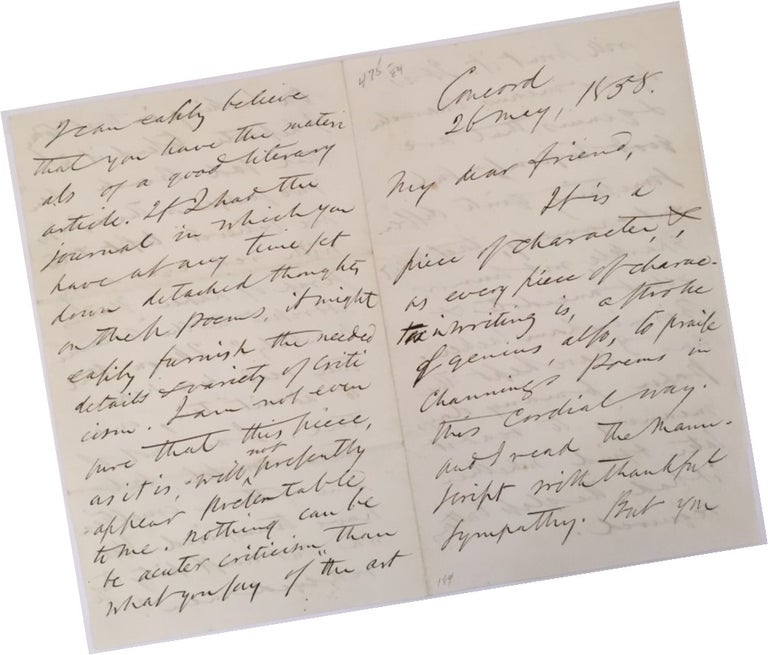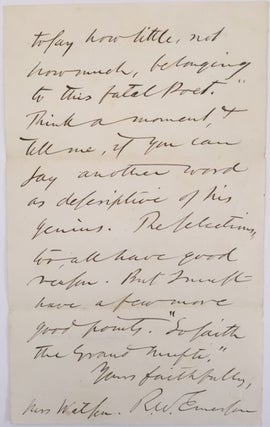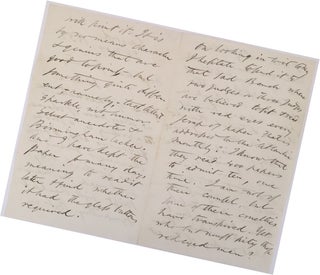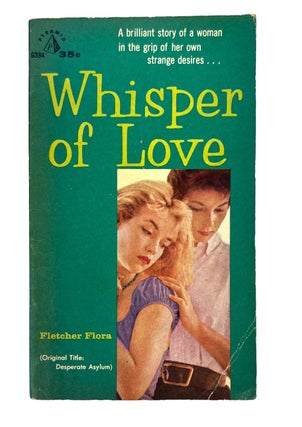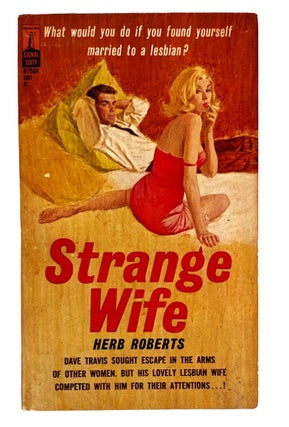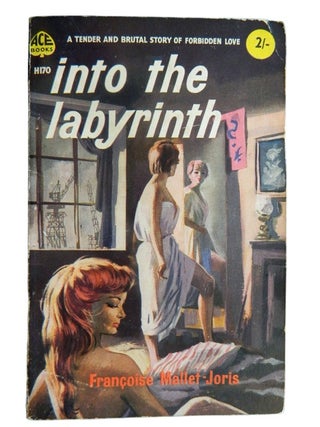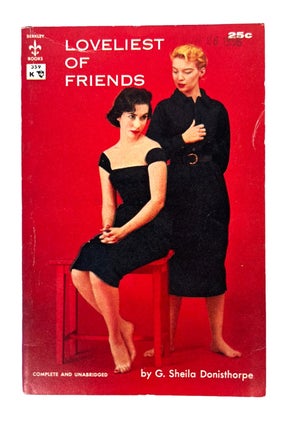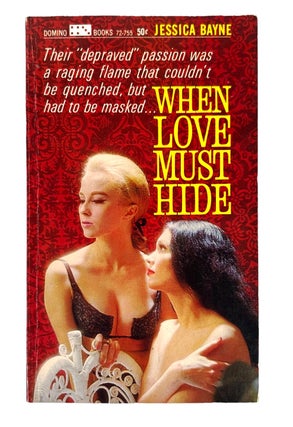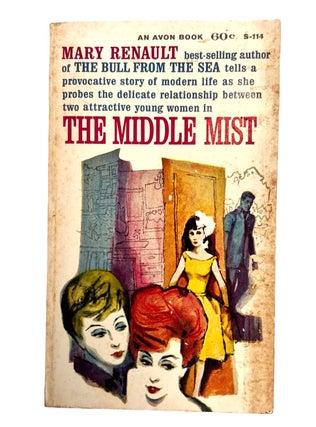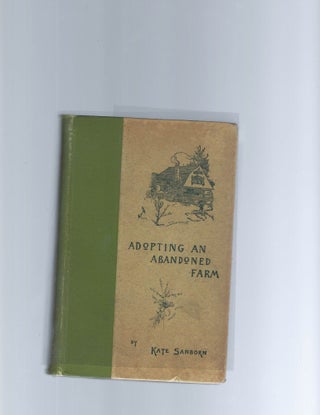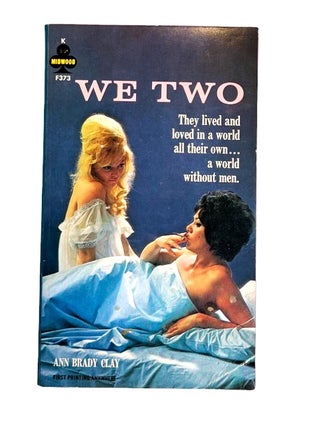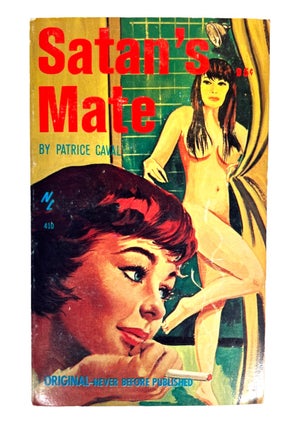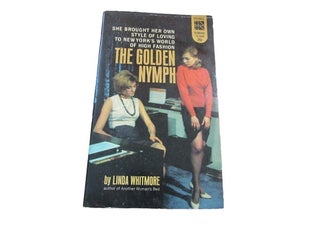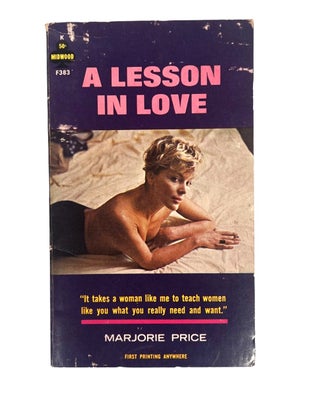Exceptional Literary Letter by Ralph Waldo Emerson to a Female Literary Critic Regarding the Atlantic Monthly and Transcendentalist Co-Founder Channing
ALS : Autograph Letter Signed
Emerson, Ralph Waldo. Autograph letter signed ("R.W. Emerson"), 5 pages, 5" x 8", Concord, 26 May 1858. A very good literary letter addressed to Mrs. Watson ("My dear friend"; likely Mary Russell Watson, former governess to Emerson's son Waldo, paramour of Thoreau, and a lifelong friend of the transcendentalists), offering his opinions on an article she has written in support of the transcendental poetry of William Ellery Channing, which she plans to send to the Atlantic Monthly. Mailing folds; minor toning and offsetting of ink; near-fine. A lengthy and detailed letter from the founder of transcendentalism on one of its major poets, to a respected woman of the movement, who authored more than one valued commentary on its primary figures.In this letter, Emerson writes to "Mrs Watson," (we believe it is Mary Russell Watson) regarding a manuscript of an article she intends to publish in the Atlantic Monthly on the poet William Ellery Channing. Emerson awards high praise to the manuscript and advises her on further additions and revisions that will bring it to a state of readiness. In doing so, the renowned author on so many pieces regarding the natural world gives a rare window into his own literary process. He writes regarding character, "every piece of character in writing is, a stroke of genius," and yet notes that character alone is not enough for a good piece of writing, "It is by no means character & genius that are good to print, but something quite different, - namely, tact, talent, sparkle, wit, humor, select anecdote & Birmingham lacker." He praises her description of Channing, "Nothing can be acuter criticism than what you say of the art to pay how little, not how much, belonging to this fatal poet," but insists she must go further, "Think for a moment, & tell me, if you can say another word as descriptive of his genius." He suggests for the most honest and varied "Reflections" she should go back to "the journal in which you have at any time jot down detached thoughts on these poems, it might easily furnish the needed details and variety of criticism." Emerson suggests that in the future he may go through her journal with her by way of assistance. Emerson also has a thing or two to say about the editors who hold final sway over what appears in print, "that sad Bench where two judges or three judges are believed to sit and read with red eyes every scrap of paper that is addressed to the "Atlantic Monthly. I know that they read 400 papers to admit ten…" Despite the flaws he points out, he assures her "you have the materials of a good literary article," and despite the hurdles her piece must overcome, "you will print it."
Watson (nee Russell) first came into contact with the transcendentalists as governess for Emerson's young son Waldo, when she was no more than 20 in 1840, and stayed for two years, until young Waldo's untimely death. She was boarding with the Emersons at the same time as Thoreau, who apparently was so taken with her that biographers attribute a "temporary lapse in Thoreau's august transcendentalism to meeting the pilgrim (Russell) on Emerson's doorstep." Although she ended up marrying his friend from Harvard rather than himself, Thoreau authored the closest piece he ever came to a love poem for Watson, titled "To the Maiden in the East" and sent it to her in Plymouth, where she moved with her husband to found an arboretum, which became a meeting ground for transcendentalists for years to come. Following Thoreau's early death in 1862, Watson published her "Reminiscences" of the great man, and the Watson manuscript archives have provided a further window into a nexus of transcendentalist thought. Perhaps even more devoted to Thoreau than Watson was Channing, the transcendentalist movement's honorary poet, and with whom Watson was also well-acquanted.
Though married to Ellen Fuller, the younger sister of Margaret, the poet Channing preferred to live instead as an unencumbered wanderer, frequently romping through the woods with Emerson and Thoreau, and known throughout New England for finding the most beautiful and hidden natural spots. It was Channing who famously offered Thoreau the advice to "build yourself a hut" which Thoreau took when he built himself a cabin on the shore of Walden Pond and began writing his masterwork. The two were so close that Channing was lost after Thoreau's death, once writing, "half the world died for me when I lost Mr. Thoreau." (Between Concord and Plymouth: The Transcendentalists and the Watsons, 1973).
Item #15364
Price: $5,500.00
See all items in
Exceptional Pieces ,
Americana,
Autographs, Letters and Archives,
Literature,
Religion and Philosophy
See all items by Ralph Waldo Emerson

